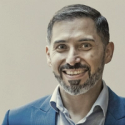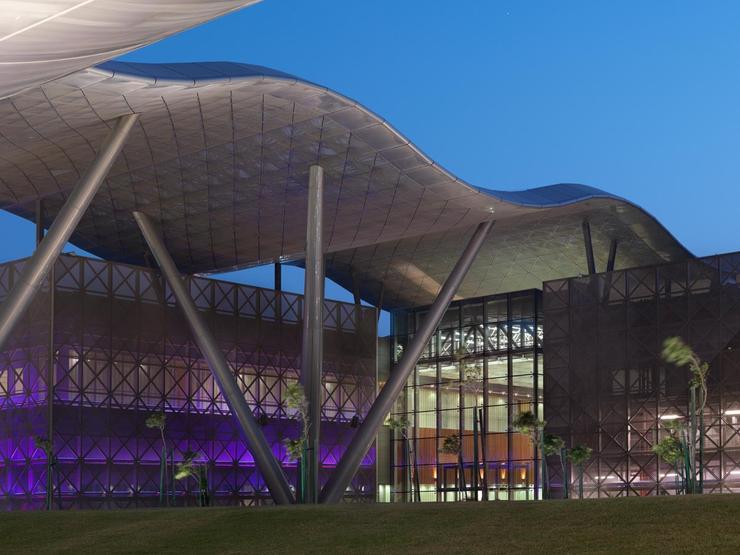The News
Qatar is taking a different approach to attracting startups, leaning on the data it has collected through philanthropy and social investing over recent decades to incubate companies focused on the climate and on solving problems for the world’s poor.
Leading this effort is Rama Chakaki, the new president of Qatar Science & Technology Park (QSTP), part of the royal family’s nonprofit Qatar Foundation that houses US universities, research institutions, and top health care facilities in Doha. After working in US venture capital firms, Chakaki saw a “detachment from reality” in Silicon Valley, which she says doesn’t interact with poor people in the US, let alone the rest of the world. Creating companies that serve this demographic is not only ethical, she said, but can be profitable when scaled.
“Nobody was really looking at the golden opportunity that exists globally now: as the rich get richer and the poor get poorer, there’s a fortune at the bottom of the pyramid that nobody’s addressing,” she said in an interview.
QSTP has incubated about 200 companies (up from 50 when Chakaki arrived in May), providing startups with roughly $100,000 in value through workspace, technological tools, and access to graduate student interns. Chakaki is focusing on bringing in companies that can use the data amassed by Qatar Foundation’s ecosystem, as well as those that have products and services that can address issues in places like Gaza, Lebanon, and Syria — which have a need for technology, are ignored by large companies, and have the potential to grow rapidly.
Know More
Qatar Investment Authority launched a program this year to deploy $1 billion to venture capital firms willing to establish their regional headquarters in the country. The initiative aims to address a funding gap for startups looking to scale in the gas-rich nation. QIA, which manages more than $500 billion, will press the firms coming to Qatar to help create jobs, develop future technologies, and strengthen key sectors such as renewables, artificial intelligence, and food security.
The program could help the country attract more VC funds. Startups in the Middle East and North Africa are having a banner year, raising a record $2.8 billion in the first three quarters of 2025 — already 40% more than what was raised in all of 2024, according to data platform Magnitt. Companies in Saudi Arabia and the UAE comprised 98% of that funding.
Chakaki said startups could still thrive from Qatar, and QSTP can help founders connect to QIA and other investors as they grow. Some of the early-stage companies include a maker of sustainable packaging that uses less plastic for fruit and vegetable wrappings, and a firm using artificial intelligence for personalized education. She said larger companies are also considering setting up in QSTP to tap into the region’s markets.



